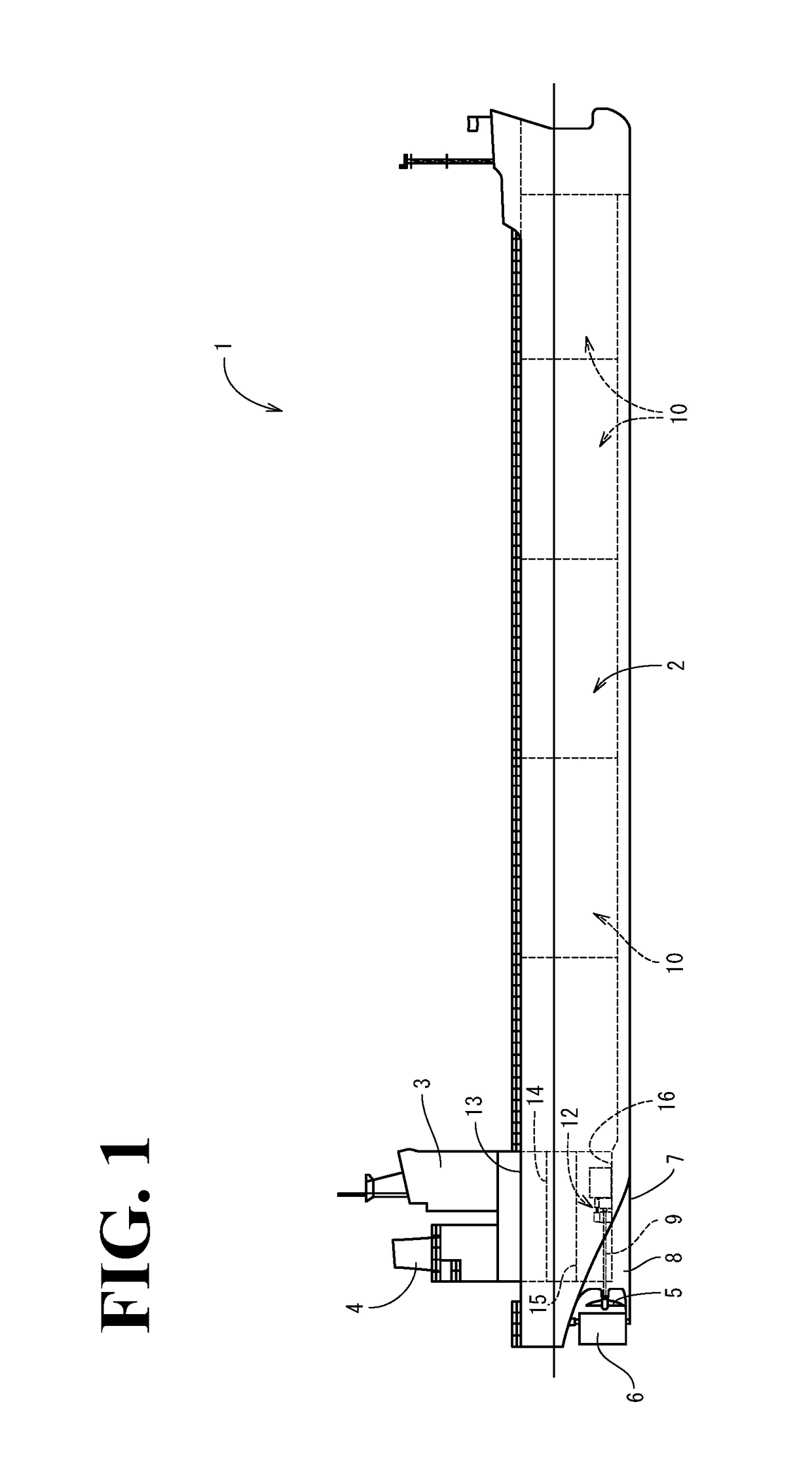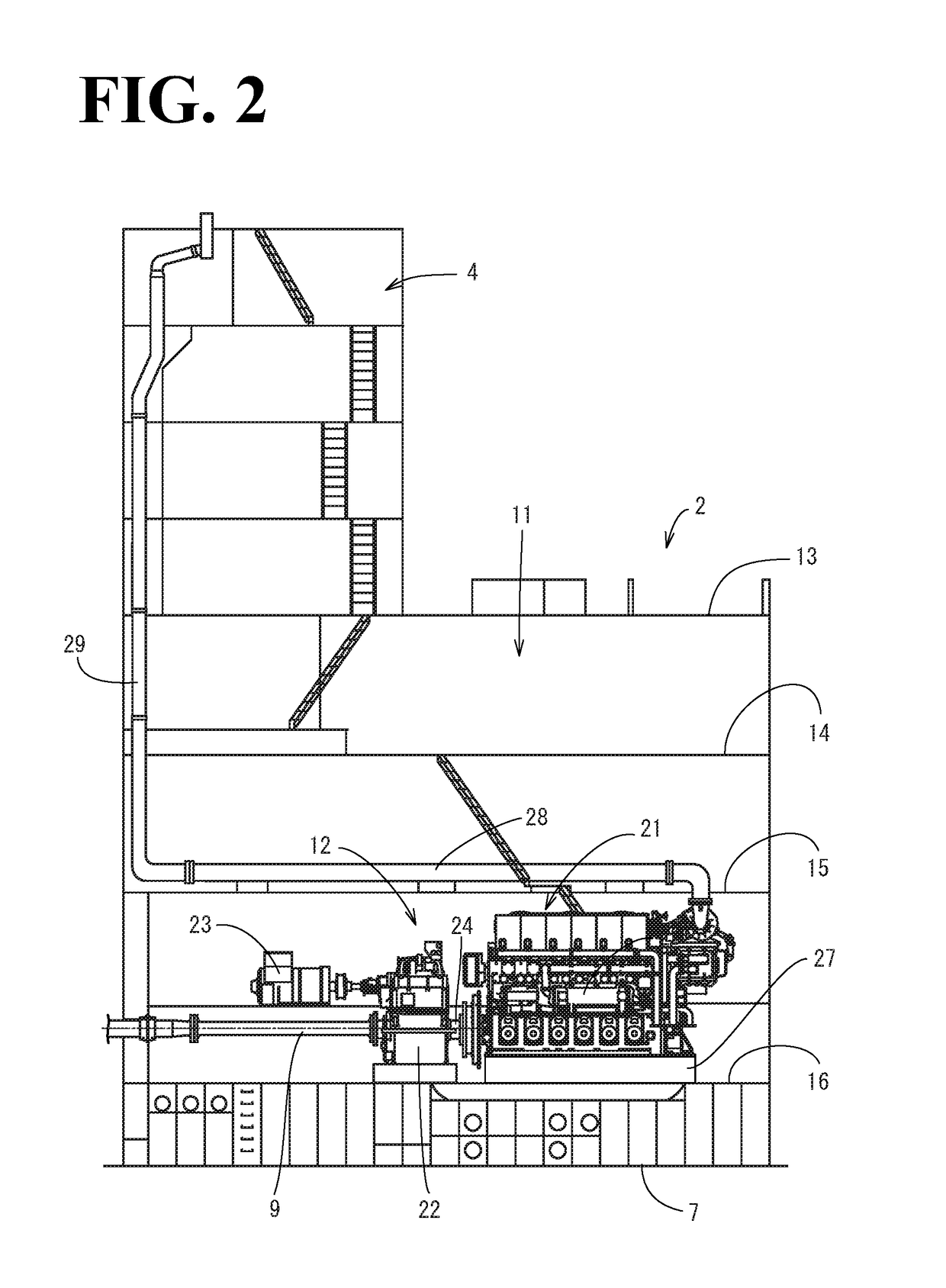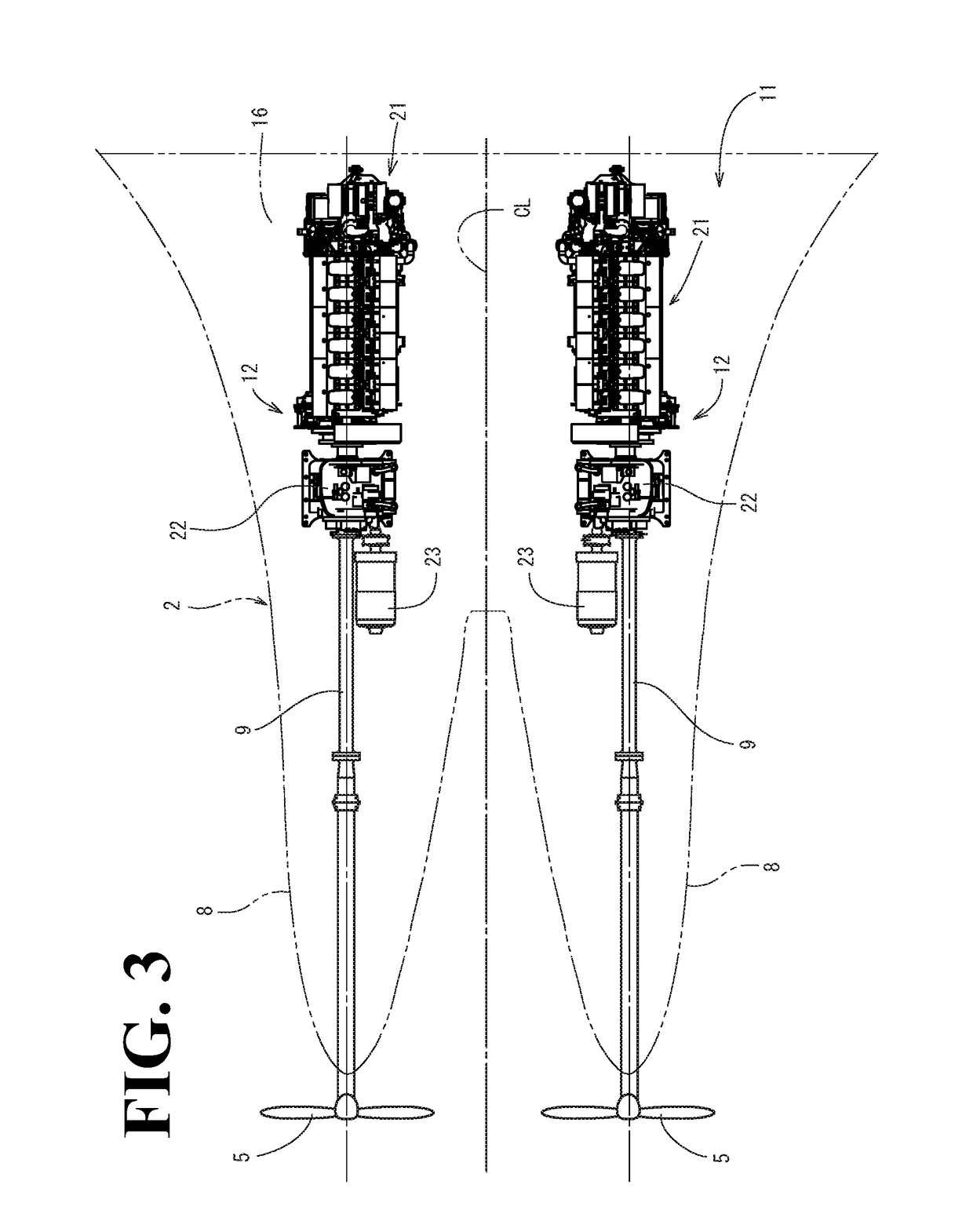Engine device
a technology of engine and exhaust gas, which is applied in the direction of machines/engines, electric control, combustion-air/fuel-air treatment, etc., can solve the problems of affecting environmental preservation and large number of exhaust emissions, and achieve the elimination or minimization of the amount of air needed for combustion, and the effect of increasing trackability
- Summary
- Abstract
- Description
- Claims
- Application Information
AI Technical Summary
Benefits of technology
Problems solved by technology
Method used
Image
Examples
Embodiment Construction
[0035]Hereinafter, an embodiment resulting from embodying the present invention will be described on the basis of figures when this embodiment is applied to a pair of propulsion and power-generation mechanisms mounted in a ship of a twin-engine and twin-shaft type.
[0036]First, the outline of a ship will be described. As shown in FIGS. 1 to 3, a ship 1 according to this embodiment includes a hull 2, a cabin 3 (a bridge deck), a funnel 4 (a smoke stack), a pair of propellers 5, and a rudder 6. The cabin 3 is disposed at the aft side of the hull 2. The funnel 4 is disposed behind the cabin 3. The pair of propellers 5 and the rudder 6 are disposed in a lower portion of the rear side of the hull 2. In this case, a pair of skegs 8 are formed integrally with an aft portion of a bottom 7. Propulsion shafts 9 are each rotatably supported by a corresponding one of the skegs 8. The propulsion shafts 9 each drivingly rotate a corresponding one of the propellers 5. The slegs 8 are formed in a sh...
PUM
 Login to View More
Login to View More Abstract
Description
Claims
Application Information
 Login to View More
Login to View More - R&D
- Intellectual Property
- Life Sciences
- Materials
- Tech Scout
- Unparalleled Data Quality
- Higher Quality Content
- 60% Fewer Hallucinations
Browse by: Latest US Patents, China's latest patents, Technical Efficacy Thesaurus, Application Domain, Technology Topic, Popular Technical Reports.
© 2025 PatSnap. All rights reserved.Legal|Privacy policy|Modern Slavery Act Transparency Statement|Sitemap|About US| Contact US: help@patsnap.com



